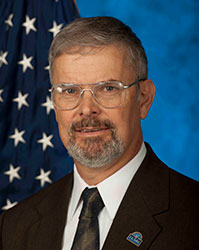Post-9/11 Vet Newsletter - 2018

| Download PDF version (1.28 MB, PDF) |
MESSAGE FROM DR. LOREN ERICKSON

As the Director and Chief Consultant for VA’s Post Deployment Health Services (PDHS), which includes the War Related Illness and Injury Study Center (WRIISC/pronounced “risk”), I’d like to welcome you to this edition of the Post 9/11 Vet Newsletter. This edition covers new and important topics including chemical warfare agents, the WRIISC’s Airborne Hazards Center of Excellence, tips on obtaining benefits, and more.
I also encourage you to act. Sign up for the Airborne Hazards and Open Burn Pit Registry if you served in the Southwest Asia Theater of Operations, to include Afghanistan, Djibouti, or Iraq, on or after August 2, 1990, or on or after September 11, 2001. After you complete the registry questionnaire, you should make an appointment for the optional registry health exam. This exam helps link self-reported exposures with health outcomes.
You should sign up for the registry because it will help both you and VA understand health concerns regarding military environmental exposures. As a Veteran myself, I recognize the importance of participating in a registry to give me answers personally and to help my fellow Veterans. The registry can also be used to contact you as new information becomes available.
Veterans who served prior to 2004 may not be in the Department of Defense automated database and may need additional help joining the registry. If you have any issues with signing into the registry, please contact us at 1-877-470-5947.
Thank you for serving our country and for your support of this registry. We are honored to serve you.
In this issue...
Data collection complete for large study on the health and well-being of recent Veterans
VA’s Epidemiology Program completed data collection for the Comparative Health Assessment Interview (CHAI) research study. This study aims provide information about how military service, deployment, and combat have affected the health and well-being of Veterans who served during Operations Enduring Freedom, Iraqi Freedom, and New Dawn.
The Burn Pit Registry - moving forward with new directives and reports
VA is finalizing a response to a new directive for the Airborne Hazards and Open Burn Pit Registry to establish clinical and administrative policies. VA also expects a Congressionally-mandated report on the registry from the National Academies of Sciences, Engineering, and Medicine to be finalized soon.
Chemical weapons – History and future plans for exposed Veterans
VA and the Department of Defense are currently engaged in a joint effort to develop long-term plans for addressing chemical warfare agents (CWA) and weaponized toxic industrial chemical exposure, including plans for medical follow-up, surveillance, risk communication, benefits, and outreach.
Surveillance program and registries for Qarmat Ali Veterans
Veterans who guarded the Qarmat Ali treatment facility are eligible to participate in the Qarmat Ali Medical Surveillance Program, a free, special medical surveillance program, along with the Gulf War Registry and the Airborne Hazards and Open Burn Pit Registry.
The Burn Pit Registry - Participating contributes to important research efforts
Researchers have analyzed data from the Airborne Hazards and Open Burn Pit Registry to learn about Veterans health.
Conference helps Environmental Health Clinicians and Coordinators excel in their roles
Environmental Health Clinicians and Coordinators from across the country attended a conference to help them run VA environmental health registries.
Understanding depleted uranium exposure
The U.S. military used depleted uranium (DU) in manufacturing tank armor and some bullets to penetrate enemy armored vehicles. The large-scale use of DU for this purpose began during the Gulf War. VA offers a surveillance program for Veterans exposed to DU and a registry for Veterans concerned about possible exposure.
The Airborne Hazards Center of Excellence – Offering specialty health exams and conducting research
Airborne Hazards Center of Excellence at the War Related Illness and Injury Study Center provides specialty medical evaluations for Veterans who have health concerns about airborne hazards exposures. They also conduct research studies.
Successfully filing a VA claim
Read suggestions to help Veterans be successful with their claim from a VA employee who recently completed training as a rater.
Subscribe to email updates about military exposures, including notices of published newsletters.
Download free viewer and reader software to view PDF, video and other file formats.





















